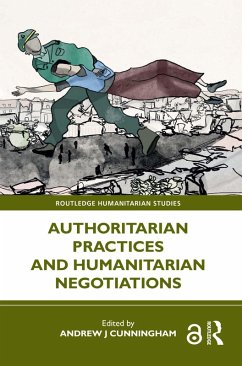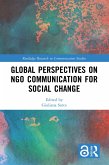Chapters provide insights at the macro, meso, and micro levels through case studies on the international and domestic legal and political framing of humanitarian contexts (Xinjiang, Afghanistan, Venezuela, Russia, and Syria), as well as the actual practice of negotiating with authoritarian regimes (Ethiopia). A theoretical grounding is provided through chapters elaborating on the ethics and trust-building dimensions of humanitarian negotiations, and an overview chapter provides a theoretical framework through which to analyse humanitarian negotiations against the backdrop of different types of authoritarian practices.
This book provides a wide-ranging view which broadens the frame of reference when considering how humanitarians view and engage with authoritarian practices. The objective is to both put these contexts into conceptual order and provide a firm theoretical basis for understanding the politics of humanitarian negotiations in such difficult contexts. This book is useful for those studying international politics and humanitarian studies, as well as for practitioners seeking to better systematise their humanitarian negotiations.
Chapters 1, 6 and 8: Commentary of this book is freely available as a downloadable Open Access PDF at http://www.taylorfrancis.com under a Creative Commons Attribution-Non Commercial-No Derivatives (CC-BY-NC-ND) 4.0 license.
Dieser Download kann aus rechtlichen Gründen nur mit Rechnungsadresse in A, B, BG, CY, CZ, D, DK, EW, E, FIN, F, GR, HR, H, IRL, I, LT, L, LR, M, NL, PL, P, R, S, SLO, SK ausgeliefert werden.









